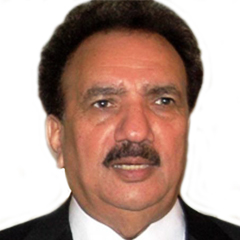I have seen a number of elections, but I’ve never seen one that is blame free. Dhandli (rigging) is now an omni word, which echoes in every election. There is no doubt that our democracy is a continued victim of horse-trading. The monster of horse-trading emerges every time; as a nation we protest every time, but we have so far failed to finish this monster.
I had a chance to examine all the relevant election laws and the relevant provisions of our Constitution. It is an utter surprise to see that the constitution does permit horse-trading as per Article 51 (d) & (e), which is reproduced hereunder:
“(d) members to the seats reserved for women which are allocated to a Province under clause (3) shall be elected in accordance with law through proportional representation system of political parties’ lists of candidates on the basis of total number of general seats secured by each political party from the Province concerned in the National Assembly:
Provided that for the purpose of this paragraph the total number of general seats won by a political party shall include the independent returned candidate or candidates who may duly join such political party within three days of the publication in the official Gazette of the names of the returned candidates; and
(e) members to the seats reserved for non-Muslims shall be elected in accordance with law through proportional representation system of political parties’ lists of candidates on the basis of total number of general seats won by each political party in the National Assembly:
Provided that for the purpose of this paragraph the total number of general seats won by a political party shall include the independent returned candidate or candidates who may duly join such political party within three days of the publication in the official Gazette of the names of the returned candidates.”
Independents have contested the same election, some from the same constituency where mainstream parties lost, due to voters losing their confidence in them. Since voters rejected the other parties and voted for independents, then under what moral authority can the independents sell their mandate
I have examined this unethical switching of independents to other political parties, which were rejected by their own voters. Unfortunately, the Constitution of Pakistan supports horse-trading rendering it legitimate for the independents to join any political party within three days of the notification.
It has been agitated by various political and individual circles that the independents were elected by the voters on the symbol allotted to them like the symbol allotted to the other parties.The independents are also seen to be contesting in competition with other parties.Legally and morally speaking, by voting to independent candidates, the voters have rejected other political parties.
The question then is, what is the difference between Pakistan Muslim League — Nawaz (PML-N), Pakistan Peoples Party (PPP) and Pakistan Tehreek-e-Insaf (PTI) as both PML-N and PPP had bought independents in the past.
Independents have contested the same election, some from the same constituency where mainstream parties lost due to voters losing their confidence in them. Since voters rejected the other parties and voted for independents then under what moral authority can the independent can sell their mandate.
This practice can safely be called open horse-trading. If a political party member changes his loyalty then he is disqualified,so when an independent candidate does the same, they should also be disqualified. They need to be disqualified for violating the mandate extended to them by their voters. The independents should vote in the Parliament openly as independents and elect the leader of the House before joining any political party, which was rejected by their constituents.
In a weak law, greed of power, excessive use of money, buying and selling of the elected members is a real issue of the country. Parliamentarians, despite their deliberations, have not taken qualitative and stringent measures for conducting free, fair and transparent elections.
The nation’s people elected these leaders,so they could act as representatives in the Parliament, and not so they could serve their own vested interests.
In view of the above I have the following suggestions. The Parliament should amend the Election Act 2017 besides thorough examination of the Code of Conduct of the Election Commission of Pakistan and approved by the Parliament.
Secondly, the provision in the constitution allowing independents to join any party should be scrapped after thorough debate in the Parliament.
Lastly, a Parliamentary Commission consisting of both the Houses and Members of the Provincial Assemblies should indicate an extensive status of the previous three elections, to work out a comprehensive strategy to ensure that no rigging takes place in future. Any rigging, tempering and hindering elections should become a cognisable offence with minimum punishment of five years,in order to create deterrence for those who do not believe in respecting the rule of law.
Strictly, morally and ethically speaking, this section of law needs to be scraped, as it is a strong tool to legitimise horsetrading, which is highly detrimental for democracy and is an injustice to voters.
The writer is Chairman of think tank ‘global eye’ & former Interior Minister of Pakistan. He can be reached at rmalik1212@gmail .com and tweets @Senrehmanmalik
Published in Daily Times, August 3rd 2018.
